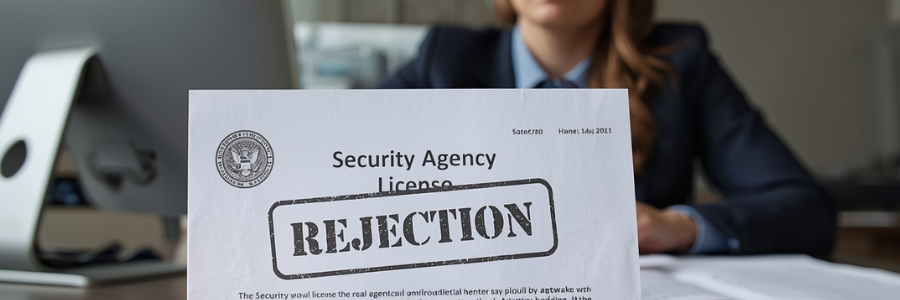Private Security Agency License: Key Compliance You Must Know
To make the operations of a private security agency transparent and sustainable, the government of India mandates PSARA registration. The Private Security Agencies (Regulation) Act, 2005, governs the regulation. Having a valid private security license is vital to operate an agency legally in India. It establishes a level of professionalism and confidence. To maintain the agency legally in India, adherence to the PSARA Act is mandatory. However, the PSARA security license may be revoked if the laws and regulations are broken. Read more below about the importance of PSARA license regulations, including how you can align with compliance.
Understanding PSARA Compliance
Compliance refers to adherence to established rules and regulations. Similarly, to regulate the private security agencies, the government of India designed the Private Security Agencies (Regulation) Act. The Act is compliance-based, which demonstrates that any individual or business that operates a private security department must obtain a valid license. Generally, the Act provides a transparent framework to govern the roles of PSAs. The major purpose of compliance is to ensure that the registered departments operate legally and meet all specific standards.
Key Role of Compliance in Regulating PSAs
The core purpose of the PSARA Act compliance is to make all private security agencies structured, professional, and under oversight. It not only guarantees the registered department but also is a critical component of public safety and national security. It works for:
- Legal Framework and Mandate Registration: The compliance makes it clear that no private security firm may function without a current security license. The state’s controlling authority is responsible for granting the license. It provides a structural legal framework that verifies that the registered business is legitimate.
- Ensure Professionalism through Training: Under the PSARA Act, 2005, the security personnel of the department must undergo rigorous training from a government-approved training institute. The training generally includes physical fitness, first aid, emergency management, and legal provisions. The law ensures that the personnel stay compliant and know how to stay disciplined.
- Accountability and Transparency: The strict compliance forces the registered departments to maintain their registers, including registers of employees, photographs, addresses, and wages. In addition, the agencies are often subject to audits and inspections by the controlling authority.
- Sets Standards & Guidelines: The Act sets specialized standards for the personnel. It guarantees that the private security guards’ uniforms don’t look like those of the police or the armed forces.
What are the Compliance Rules Under the PSARA Act?
Adherence to the private security agency license compliance means meeting the PSARA Act. This act includes the submission of personnel and agency details to the controlling authority. Learn about it using this table:
|
Starting Reporting |
The agency is required to submit the details of all personnel, such as DOB, address, name, and profession. The submission to the controlling authority within 15 days of license approval is mandatory. |
|
Details Update |
If there are any changes to the business address or the management, they must report to that state’s controlling authority. |
|
Criminal Charges |
If criminal charges are filed against any personnel of the agency, update the authority. The proposal of a copy of the charges is mandatory. |
|
Training & Standard |
To meet the physical standard test, the personnel and the supervisors received the prescribed training. The list of the training report of the managing authority. The scale of the supervisor must be 1:20 (for 20 personnel, one supervisor). |
|
Compliance with Labor Law |
The registered business must align with the labor laws. The major laws include
|
|
Police Verification |
The PSARA security registration’s most crucial component is this one. All partners and the directors of the agency must undergo the mandatory police verification. |
|
Renewal Compliance |
After a specific timeline, the renewal of the license is crucial. Renewal ensures that the agency is meeting ongoing compliance. |
Also Check: Difference Between PSARA License & Private Security Agency License
The Key Mistakes Leading to Non-Compliance
A single error during the registration process causes the cancellation of the license. Even the non-compliance with the PSARA compliance rules further leads to rejection of the application. These are the few mistakes that can result in non-compliance:
- Submitting incorrect information, incomplete documents, and missing certificates.
- Connecting with an unapproved training institute or not registering the MOU (Memorandum of Understanding).
- Not to mention all the marked details in the application form.
- Failure to pay the application charges online.
- Not applying for the PSARA registration certificate on time or submitting it after 30 days of the agency’s establishment.
- Try to operate the private security agency in a district that is not documented on the license.
- Not undergone the mandatory training sessions.
- Failure to update the controlling authority about the changes in address or management.
Penalties for Non-Compliance with the PSARA Act
Multiple factors cause the rejection of PSARA License Approval. But, often, the registered businesses face a penalty for not staying in compliance with the PSARA license regulations. The agency will be penalized for operating without a license. Failure to obtain the license could result in fines of up to Rs 25,000 or both for the agency. Under sections 9, 10, and 12 of the PSARA Act, the private security department may fine up to Rs 25,000 in addition to a likely hiatus or license revocation. One of the biggest impacts of the non-compliance will be on the agency’s reputation. It can be a loss of business and reputation damage.
Sum Up | PSARA Act Regulates Private Security Agency License Compliance
The non-compliance with the PSARA Act regulation means breaking the rules set by the controlling authority. In India, obtaining a private security license is more than just a formal requirement. Meanwhile, the non-compliance leads to structural legal action, including imprisonment, possible fines, and the business shutdown. However, these challenges can be avoided by staying compliant with the Private Security Agency’s legal compliance. Your registration journey can be hassle-free with LegalRaasta professionals. We guide you from end to end of the service.
Got Questions? Read Our Top-Searched FAQs
- Which license is required for the private security agencies?
Ans. To operate a private security agency legally in India, a PSARA security license is required.
- How is GST applicable during PSARA licensing?
Ans. To meet tax compliance, registration for the GST certificate is a prerequisite.
- How to apply for PSARA registration?
Ans. For the registration, gather the necessary documents and sign the MOU (Memorandum of Understanding) with the approved training institute. Complete the online form and then undergo the police verification process. Upon verification, wait for the license approval.
- Can non-Indian citizens apply for a PSARA Act license?
Ans. No, non-Indian citizens are not eligible for the PSARA. This is because the PSARA Act demonstrates that only Indians can obtain a security license.
- What are the PSARA government fees?
Ans. The mandatory government fees structure for PSARA are divided into three parts. These three requirements are based on the basis of the districts. For any query, visit the LegalRaasta.com website.










